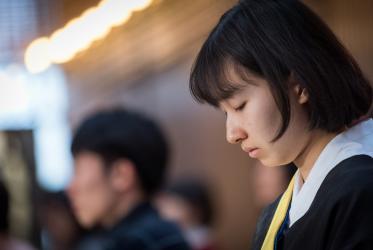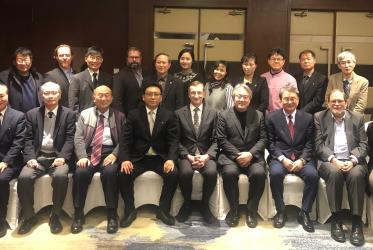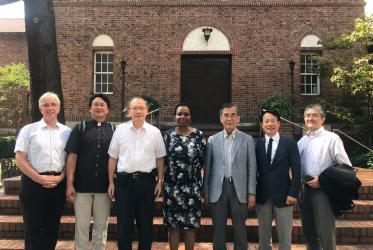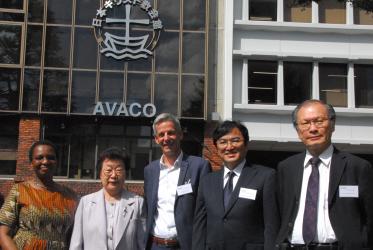Displaying 21 - 40 of 168
Worldwide prayer campaign begins to end 70-year Korean War
06 February 2020
Religious leaders keep vision of peace alive on Korean Peninsula
10 December 2019
WCC delegation meets with Korean prime minister
19 November 2019
Tveit: “Love is about the future: Where are we going from here?”
17 November 2019
Hanbeet Rhee: “Young people can be bridges”
17 October 2019
In Japan, spirit of koinonia deepens
26 September 2019
WCC gravely concerned for West Papua
25 September 2019
In Japan, theologians reflect on today’s global manifestations of racism
18 September 2019








